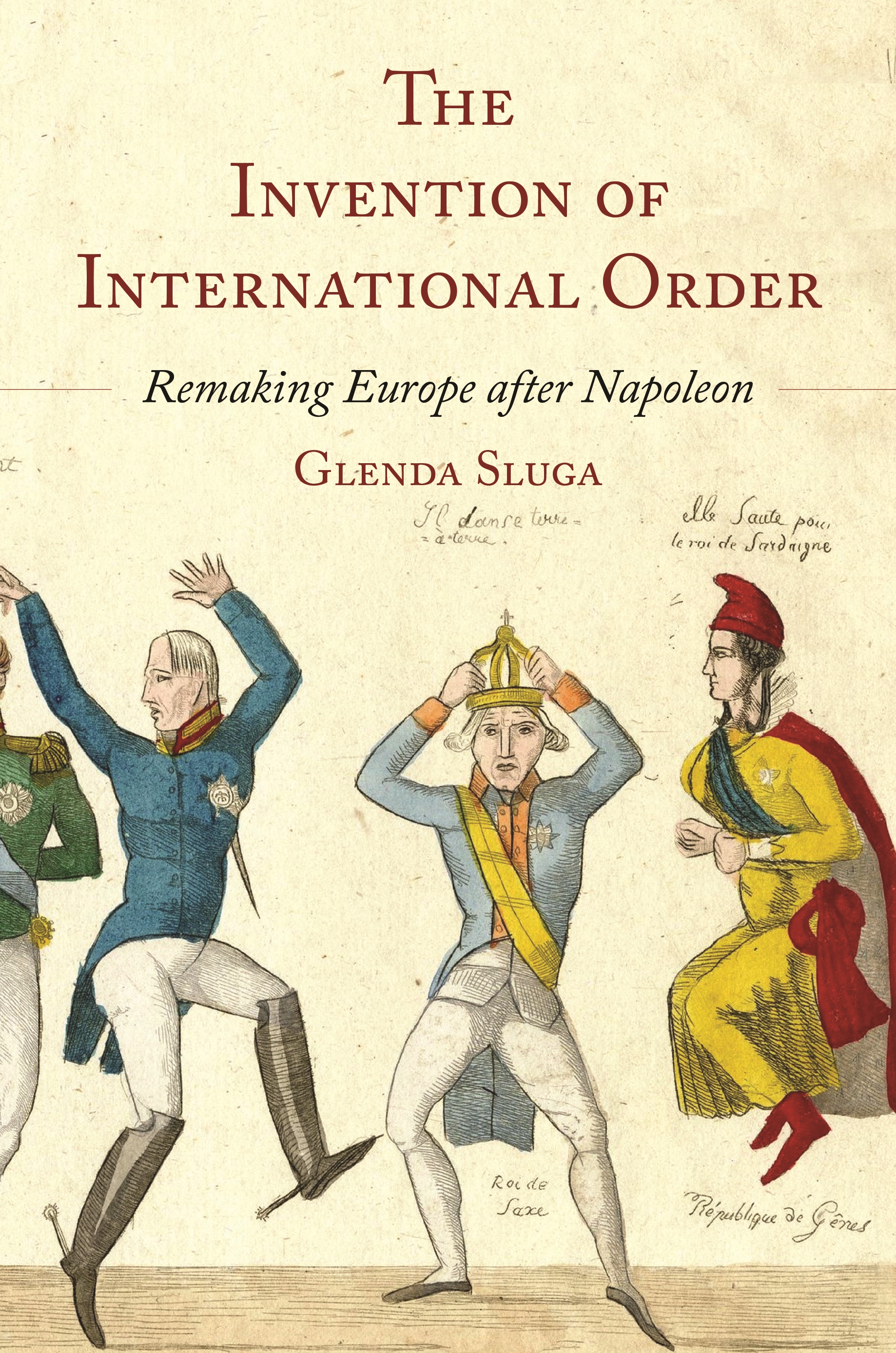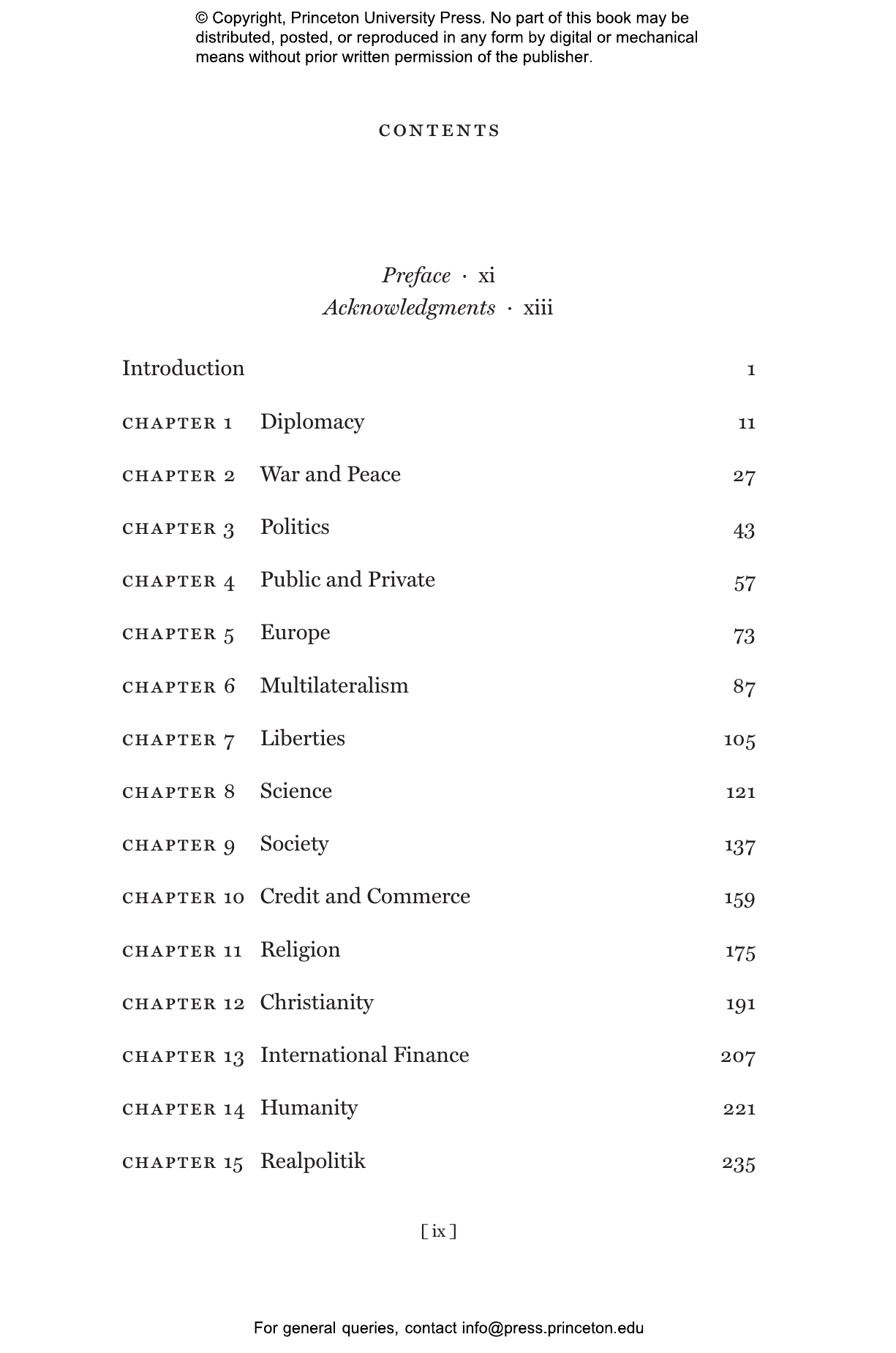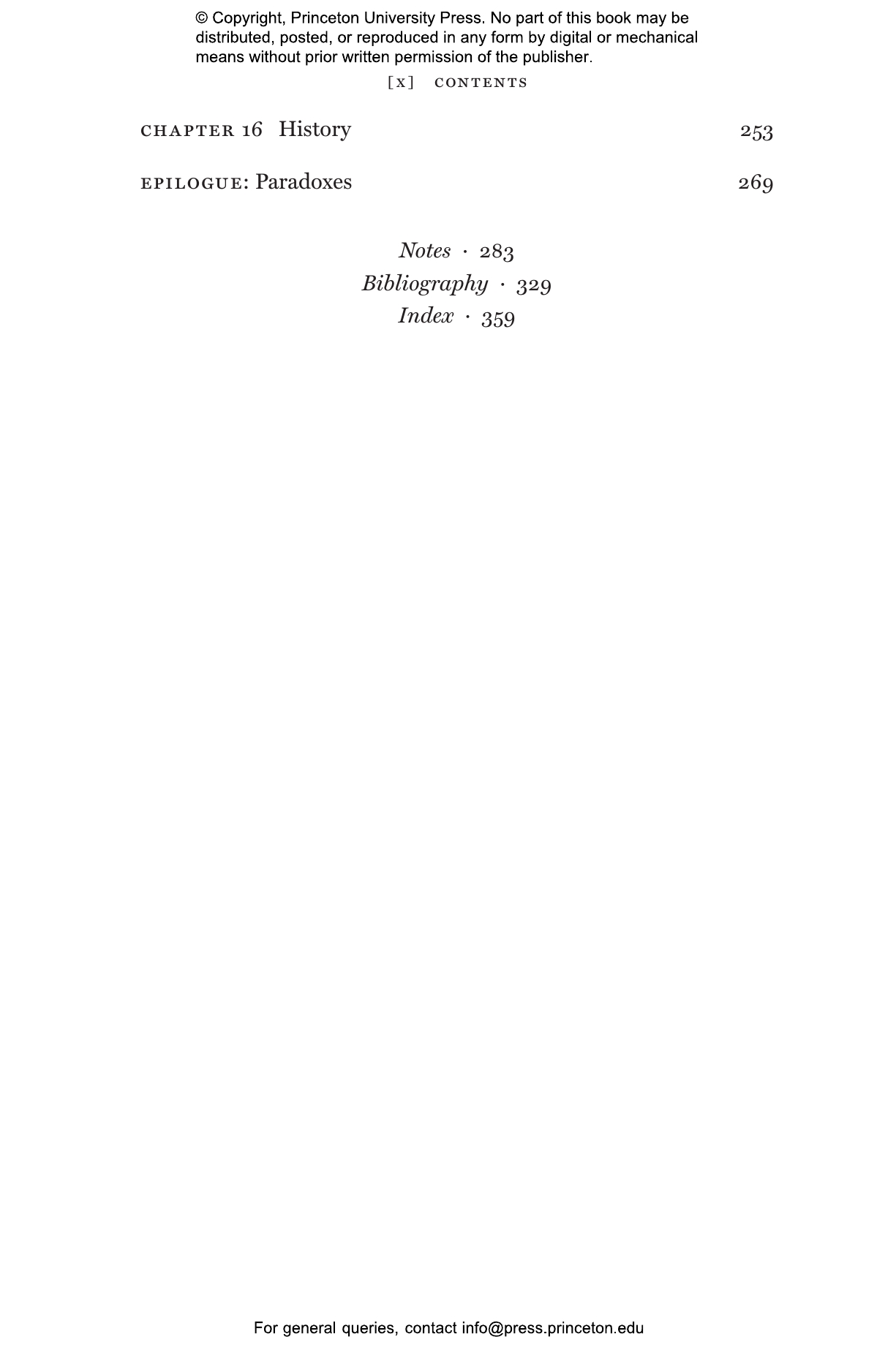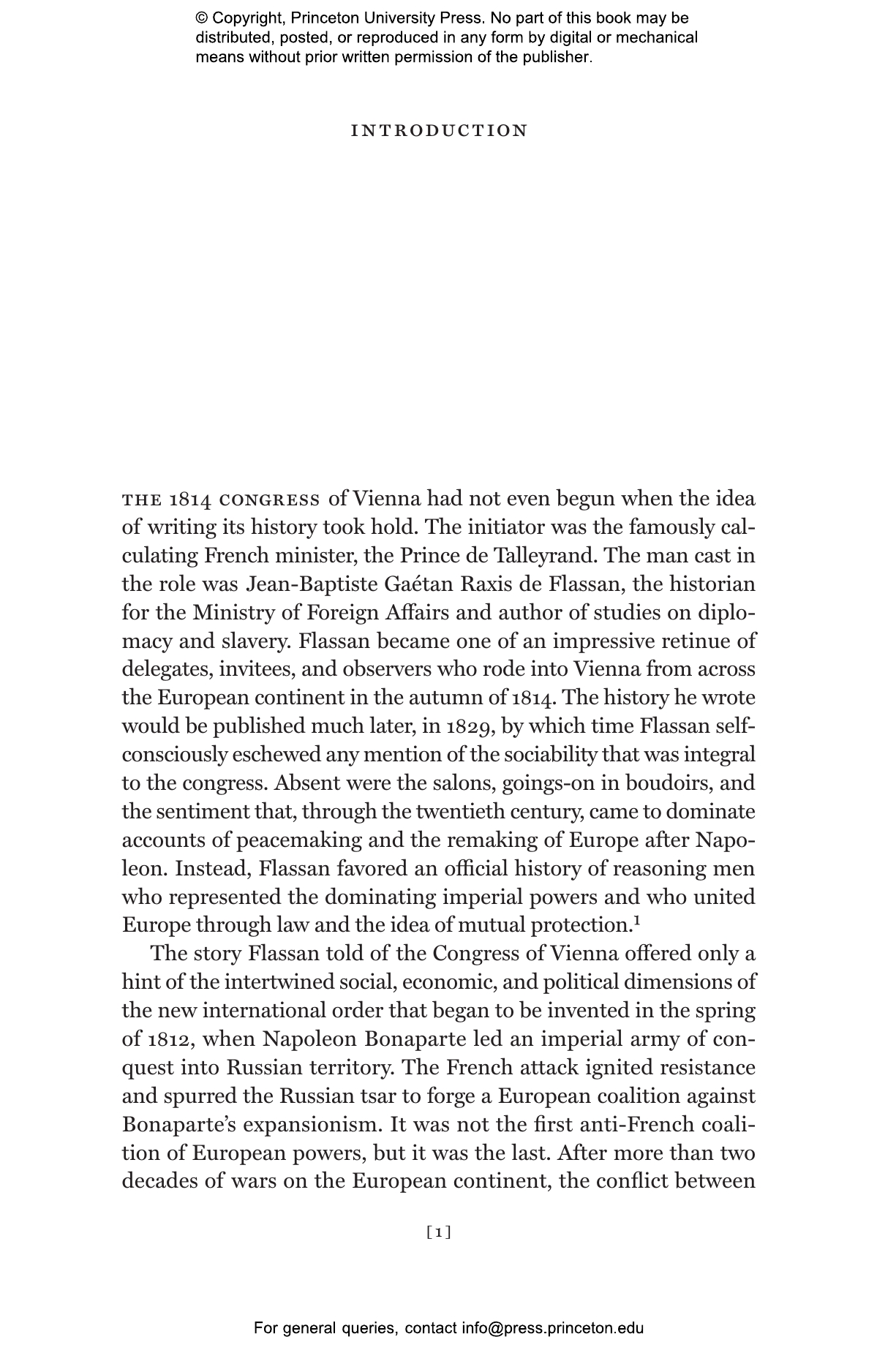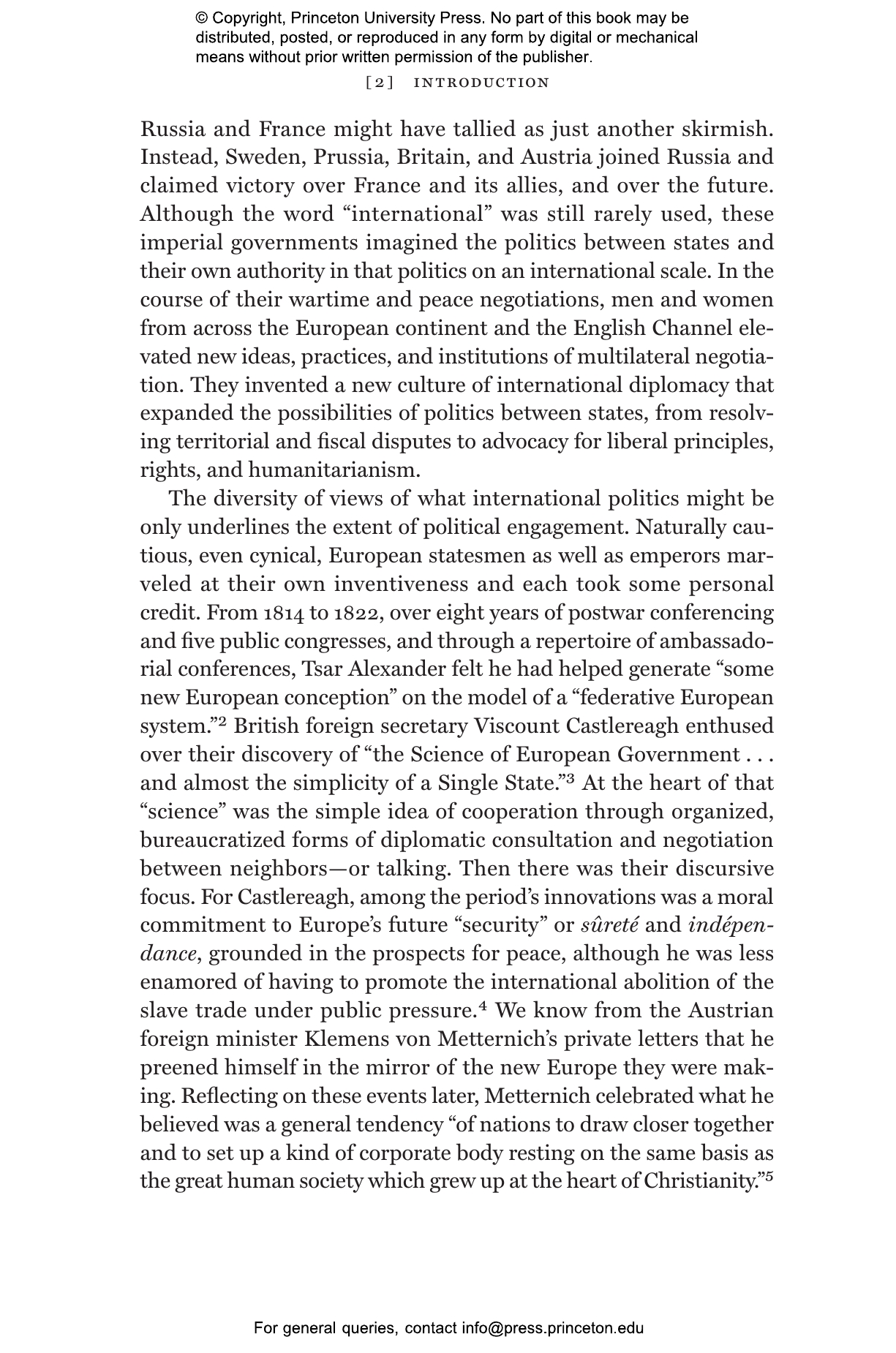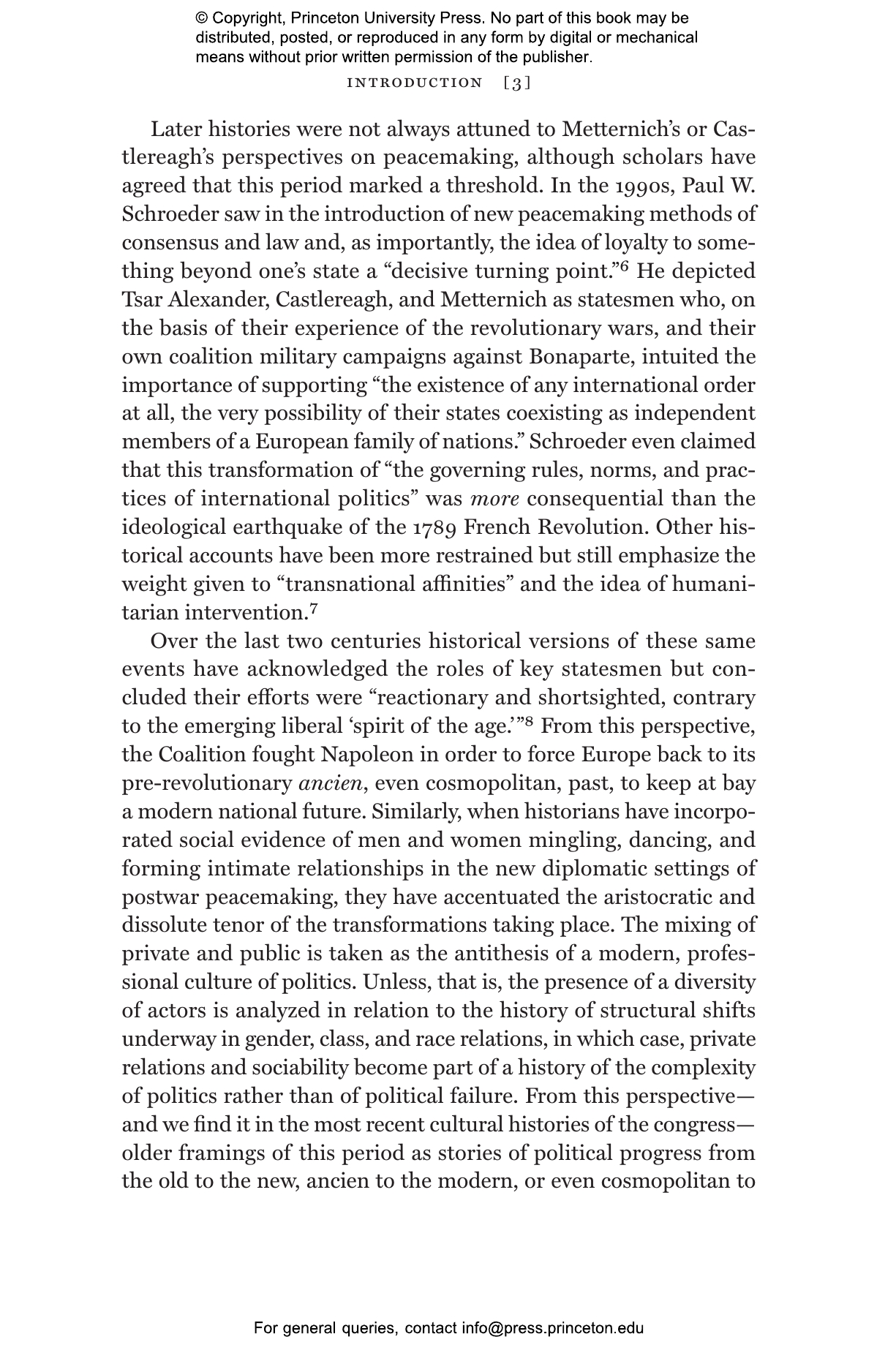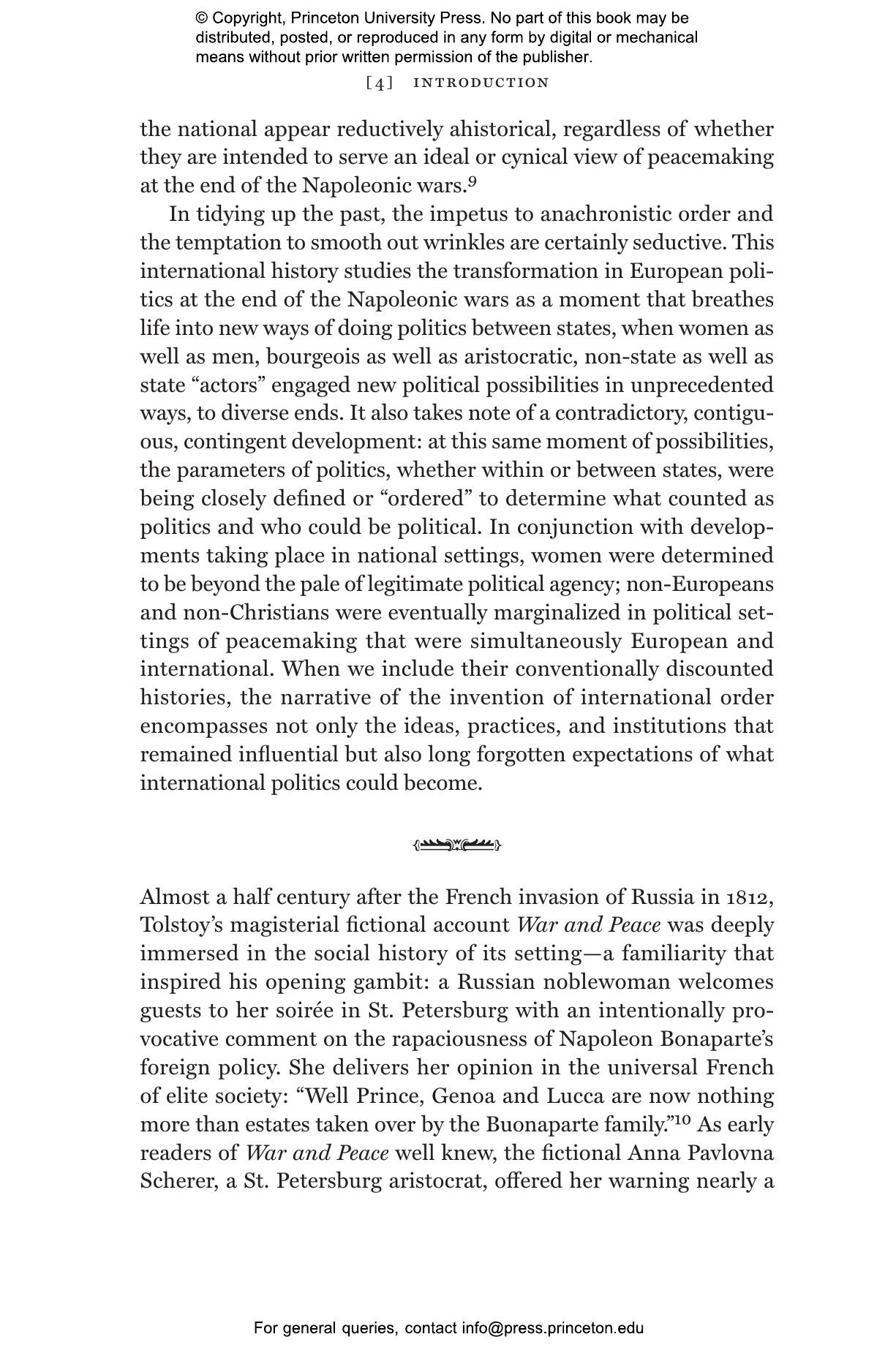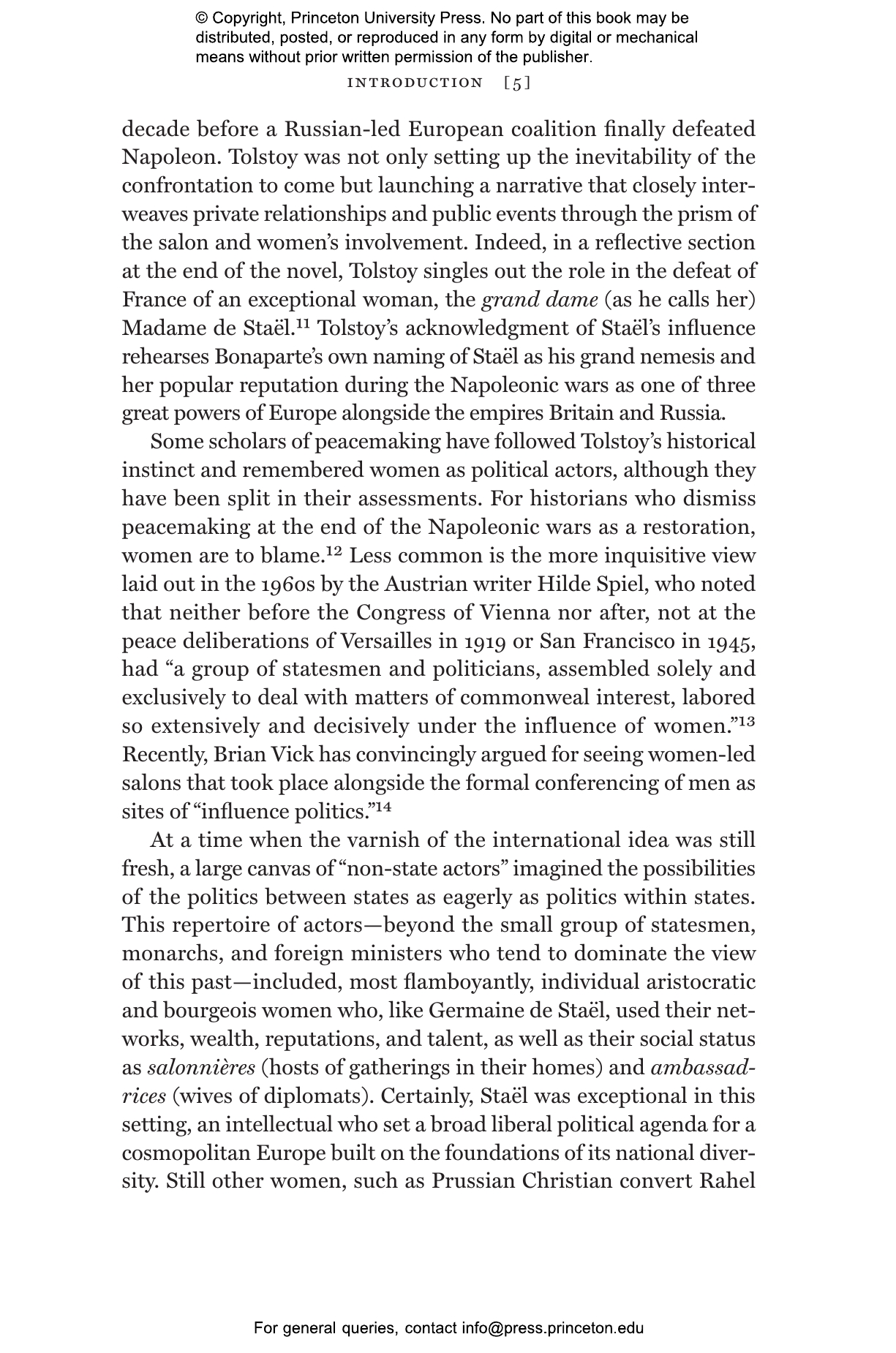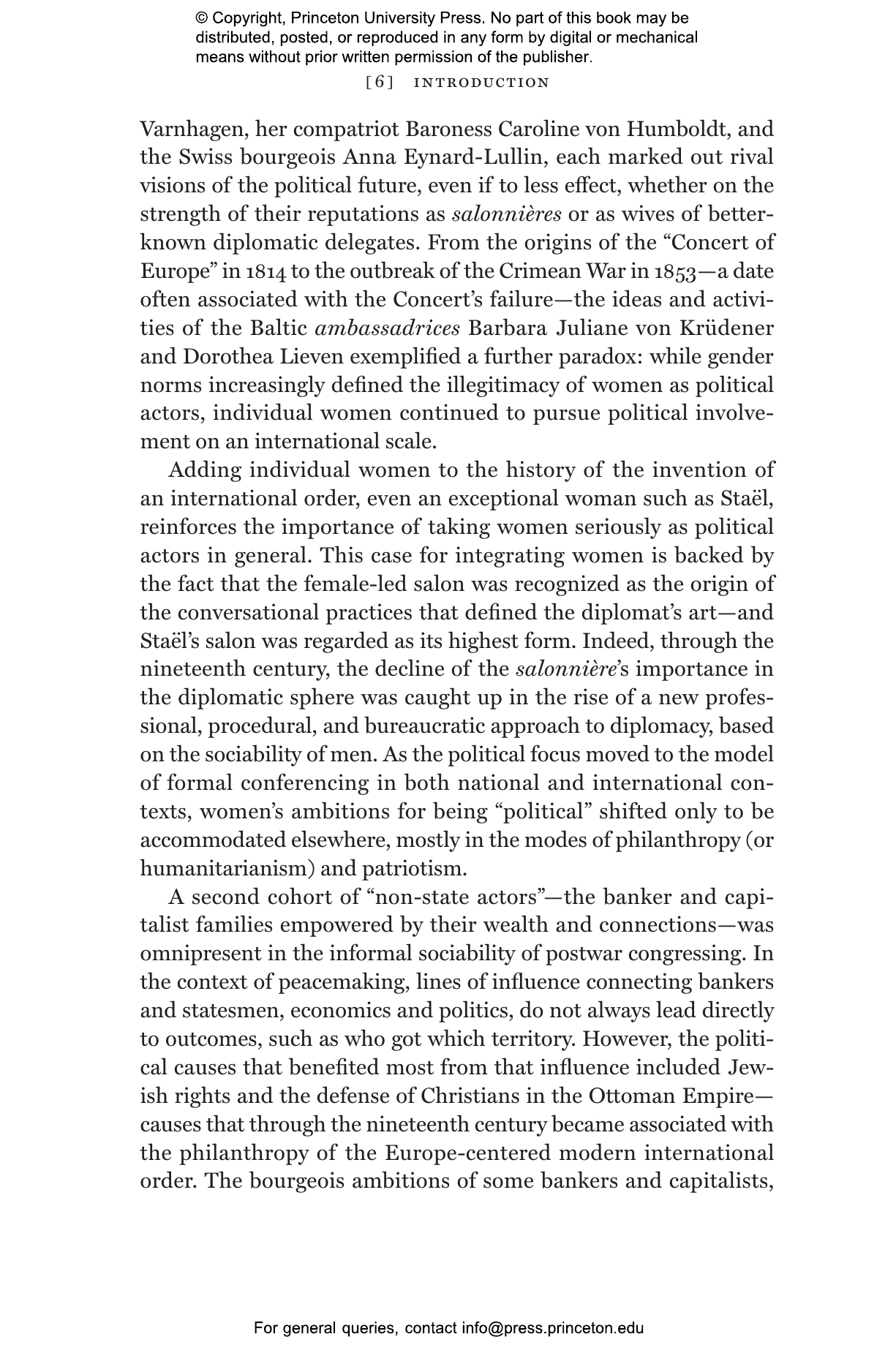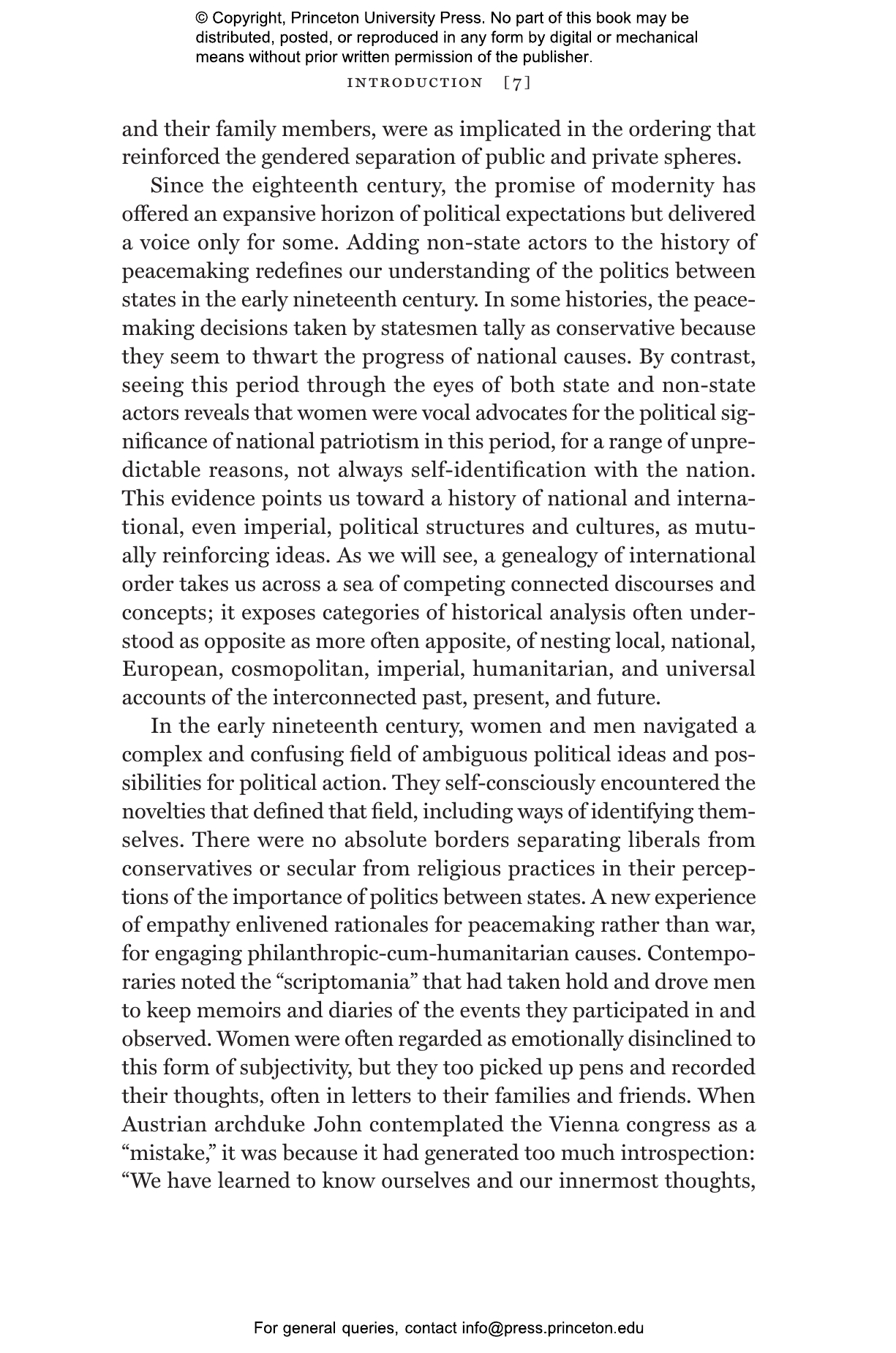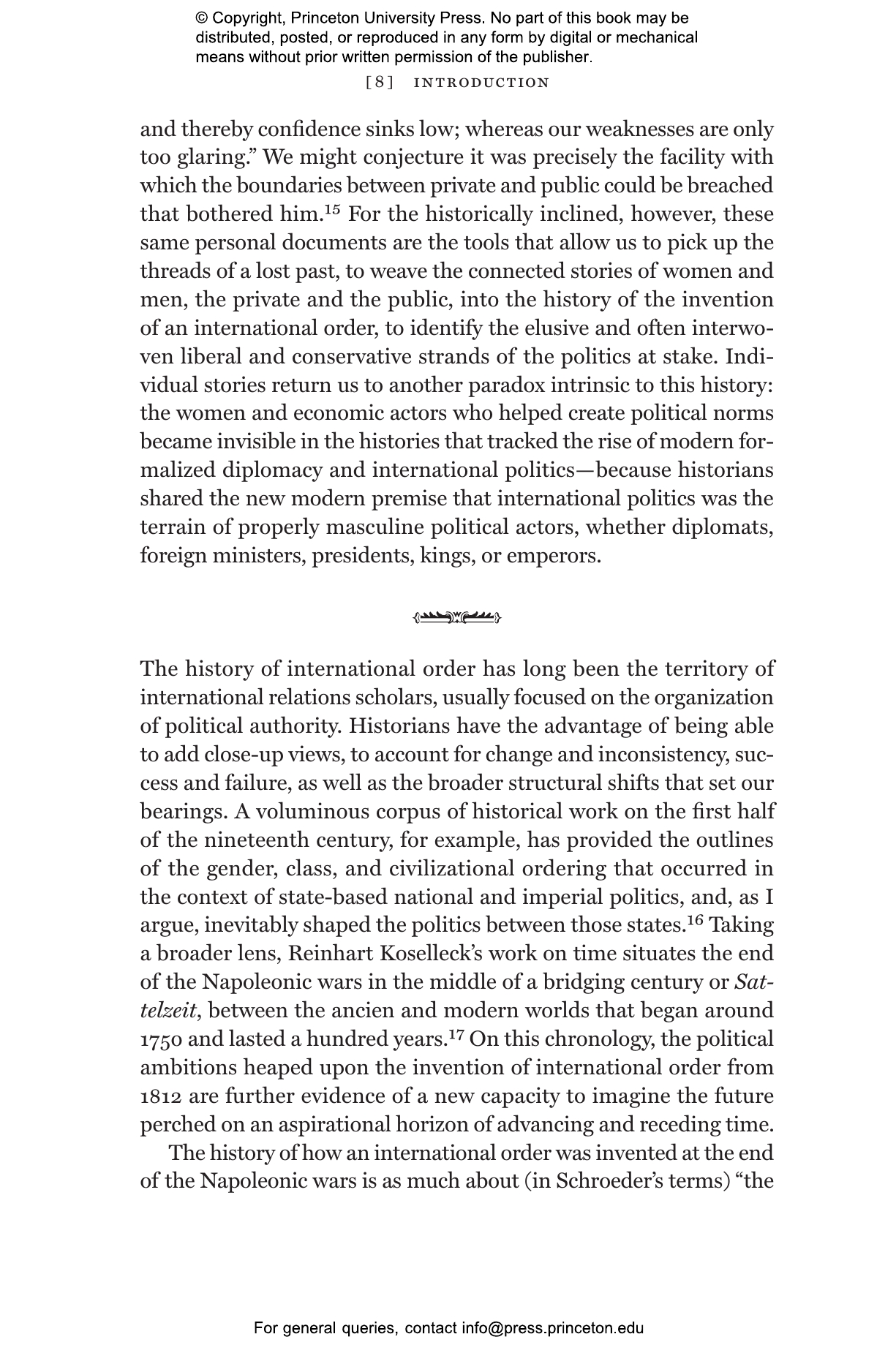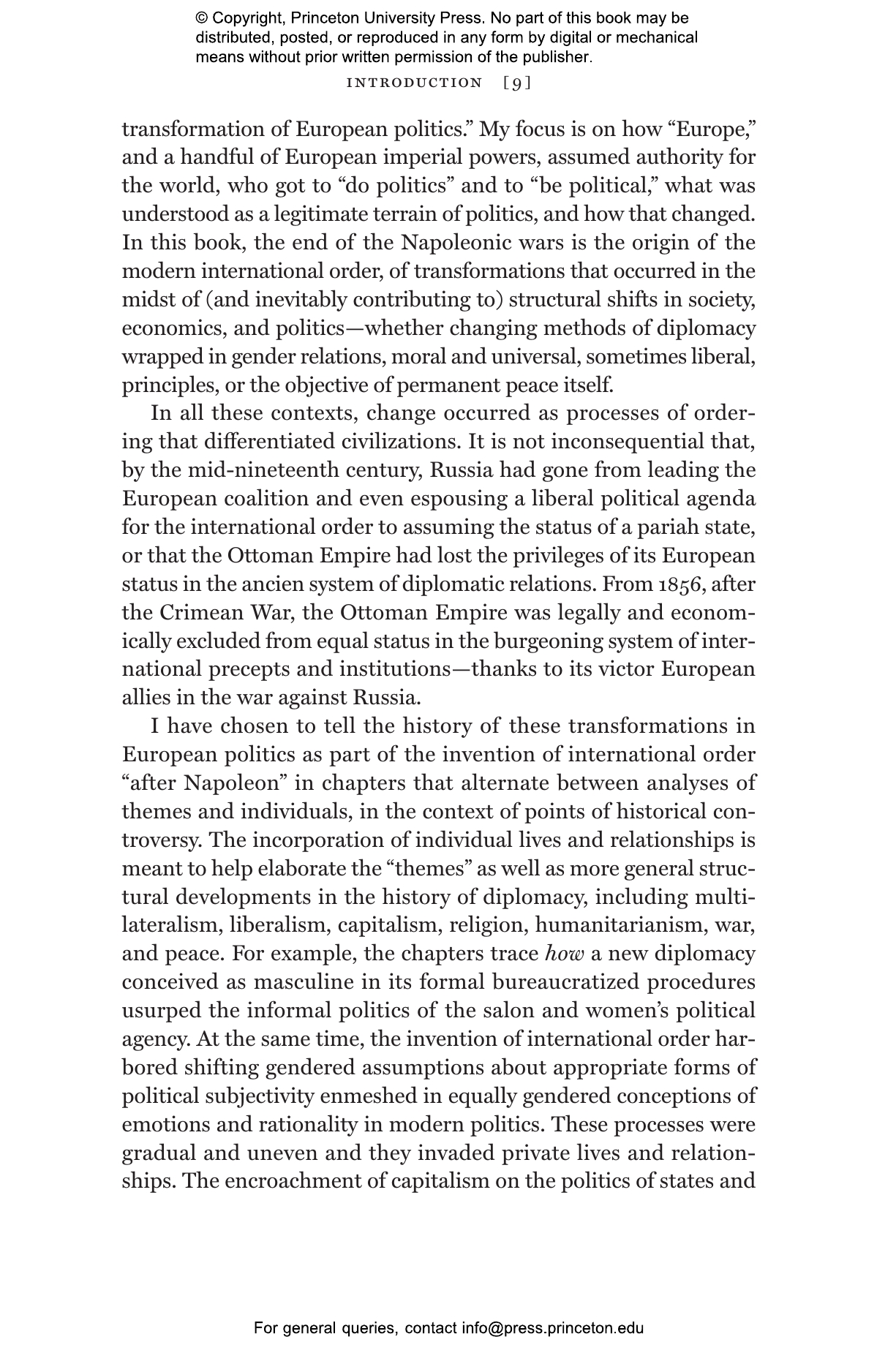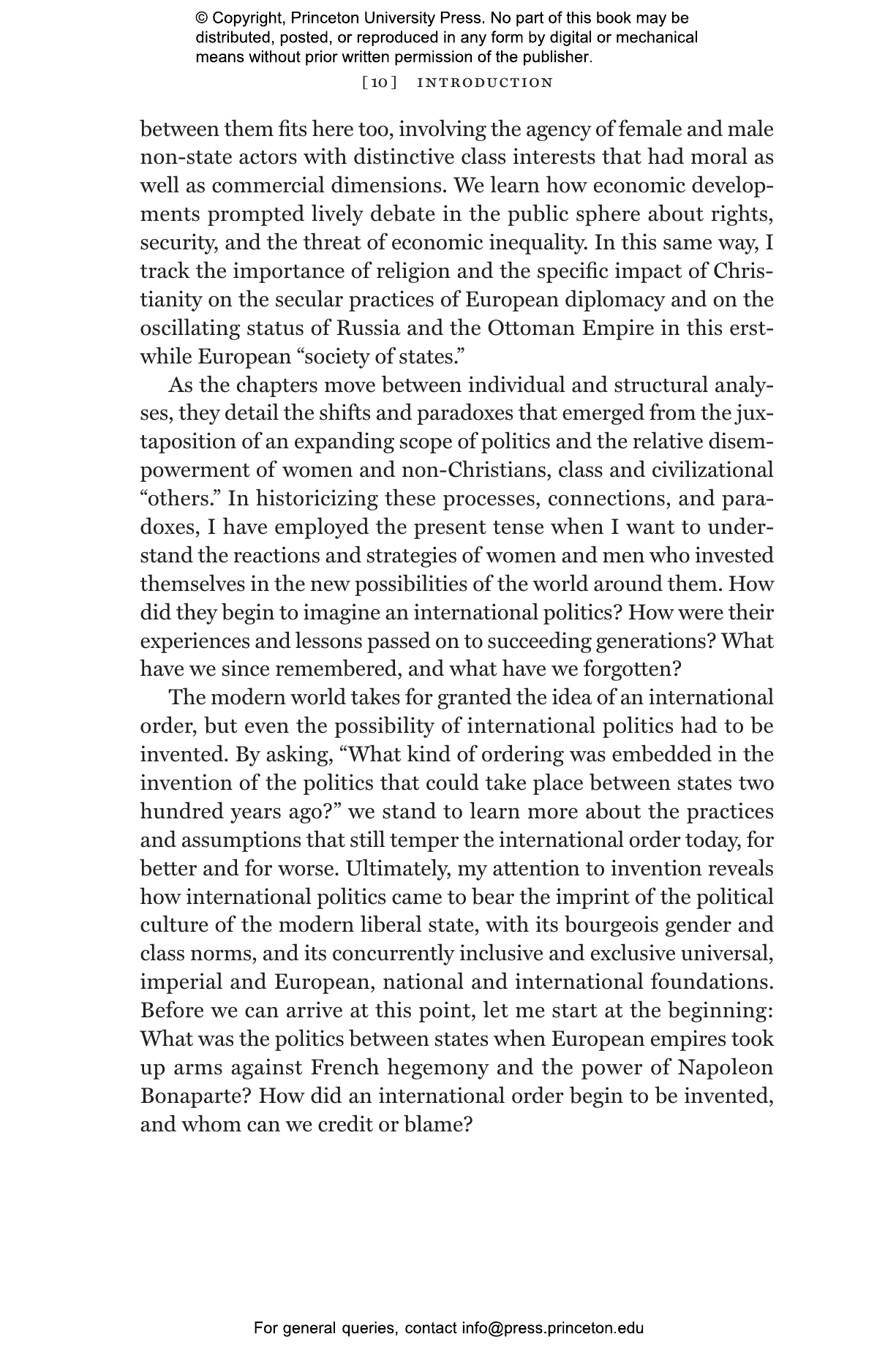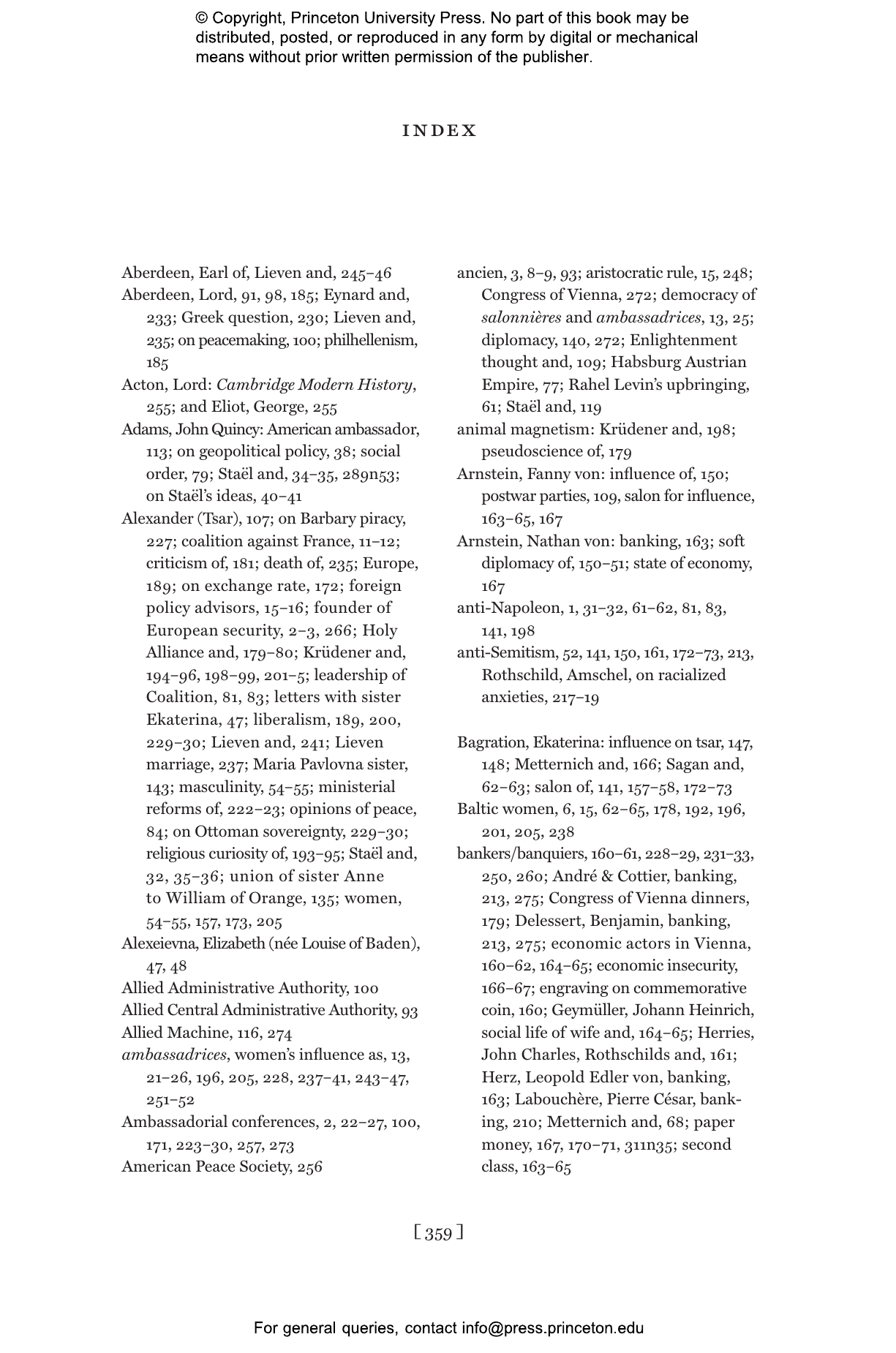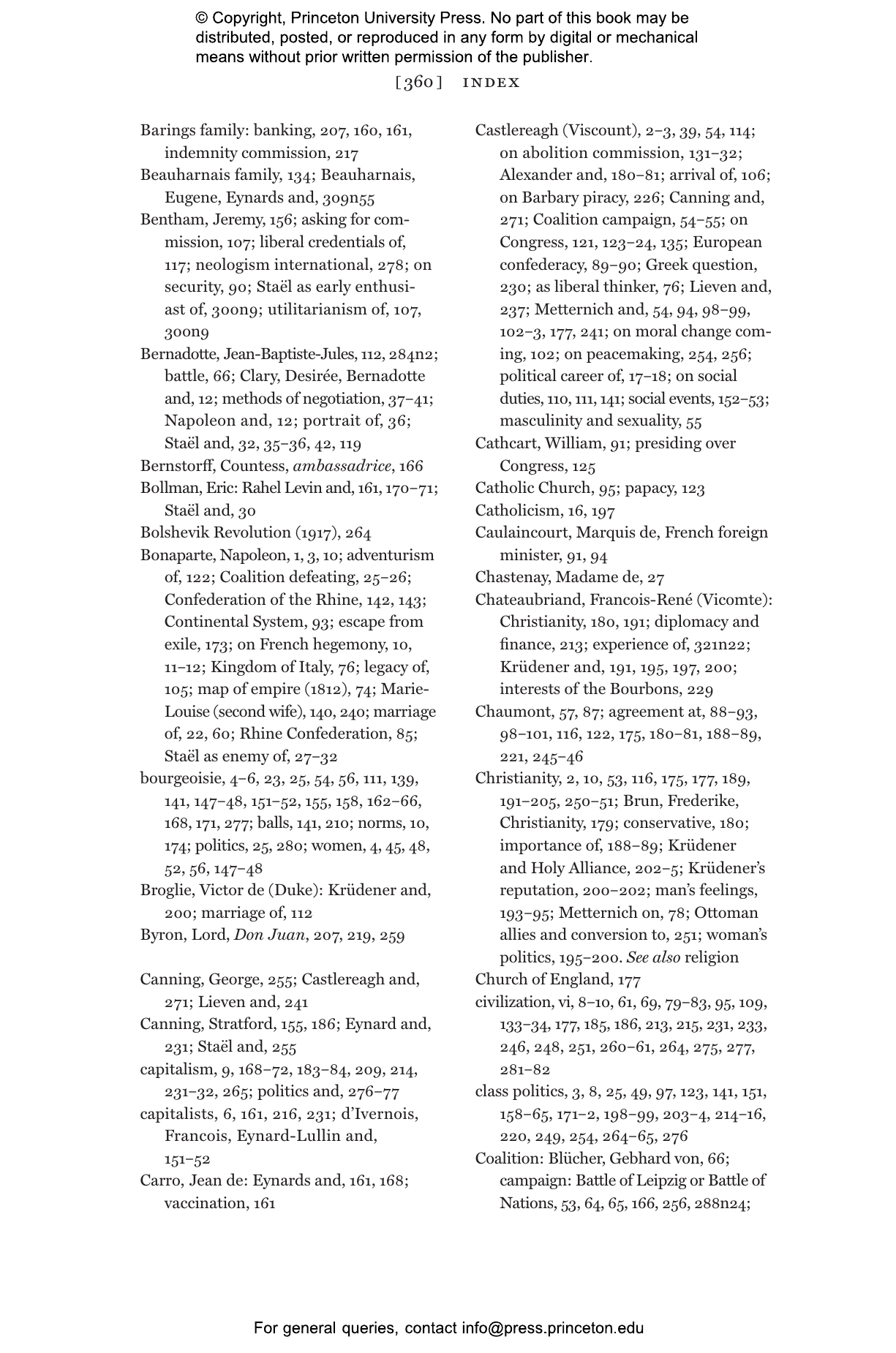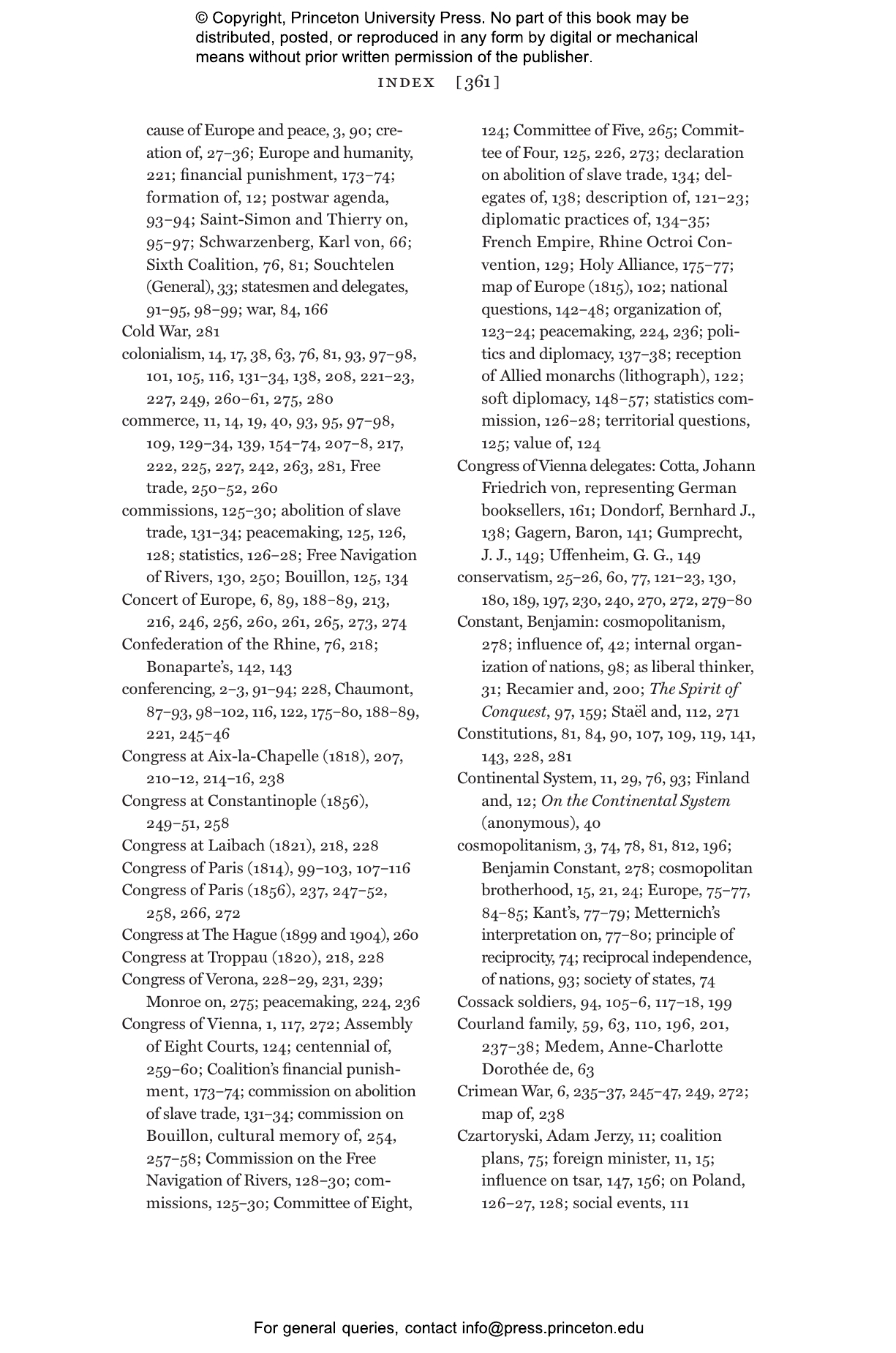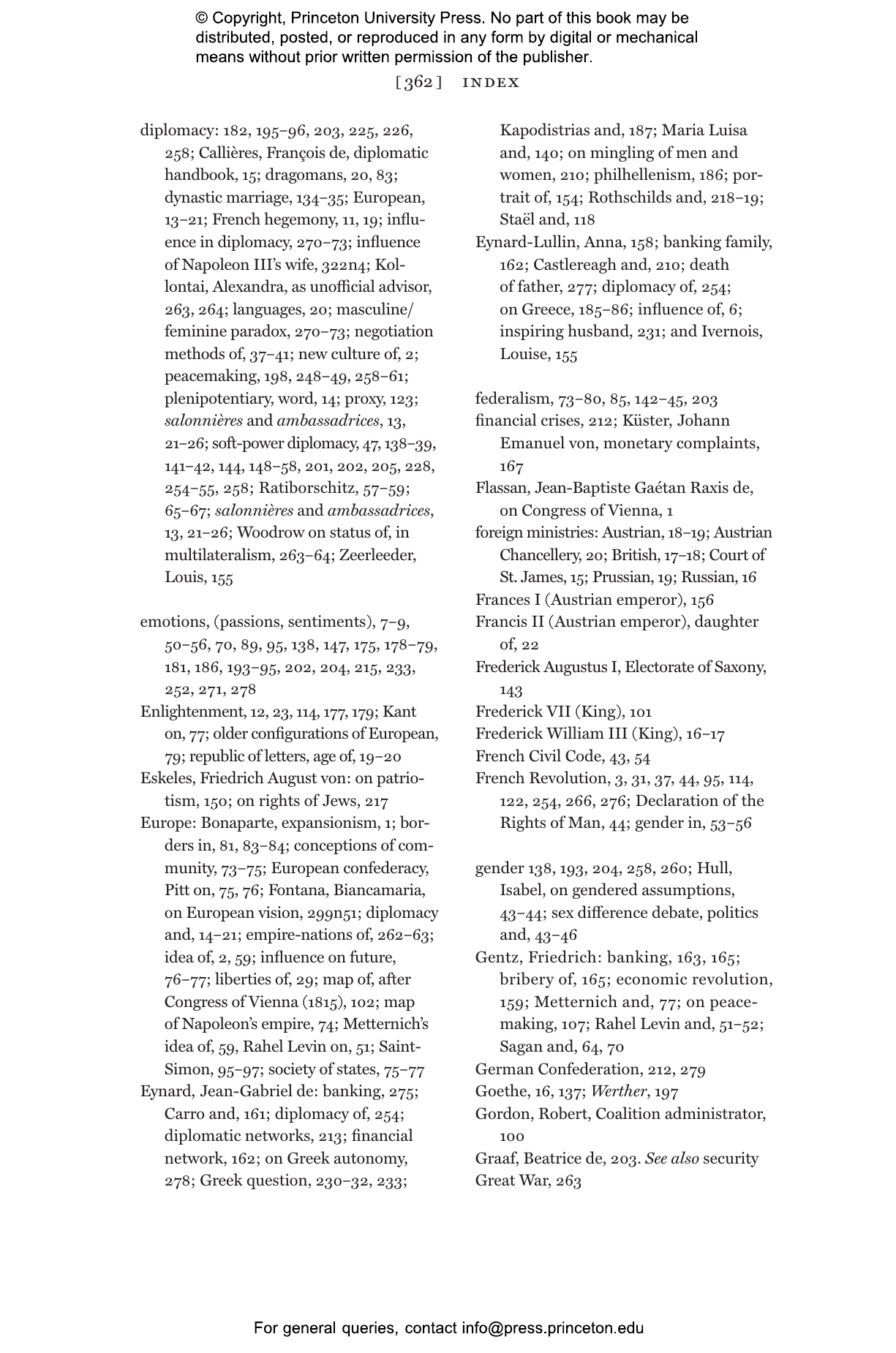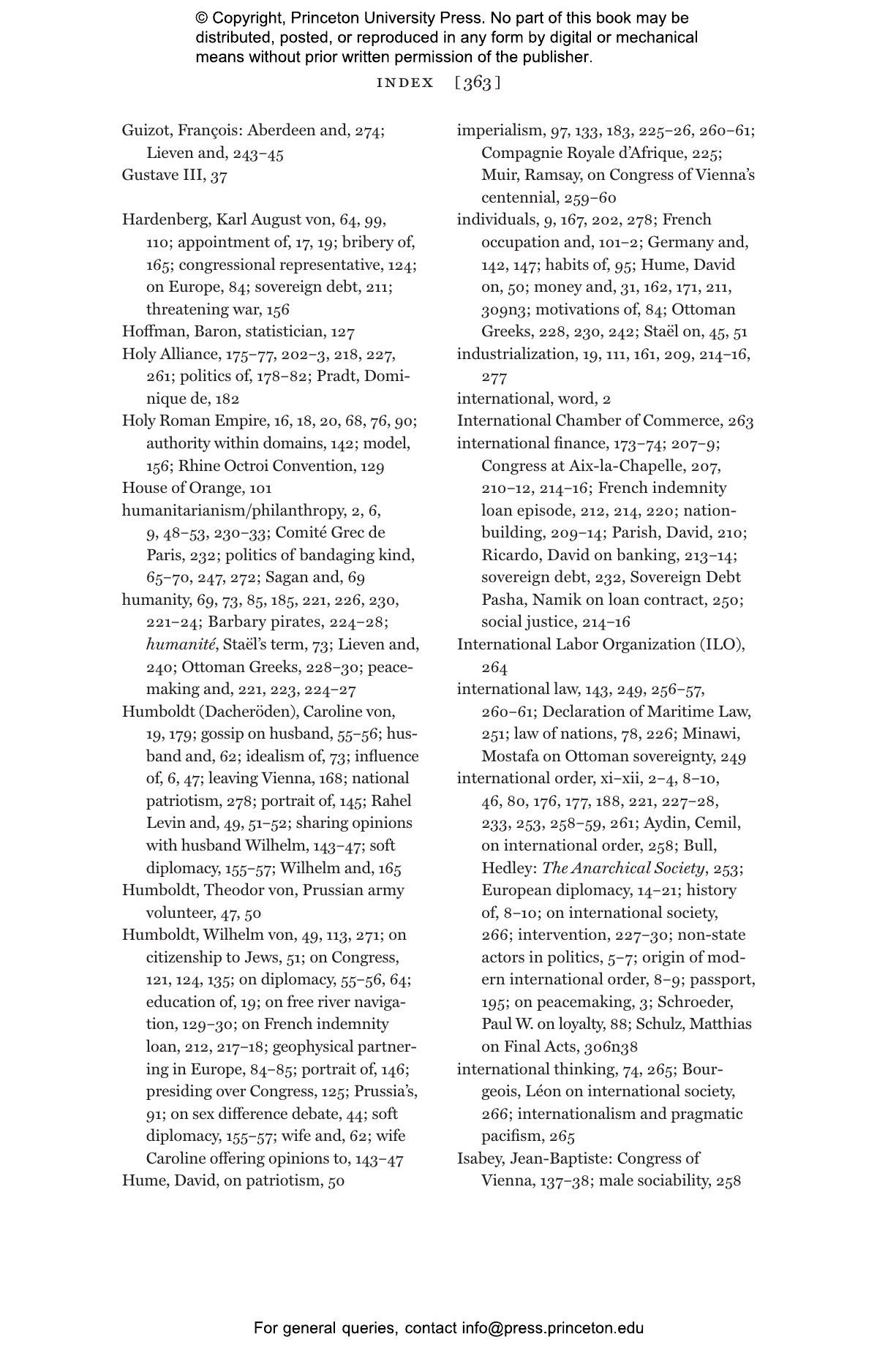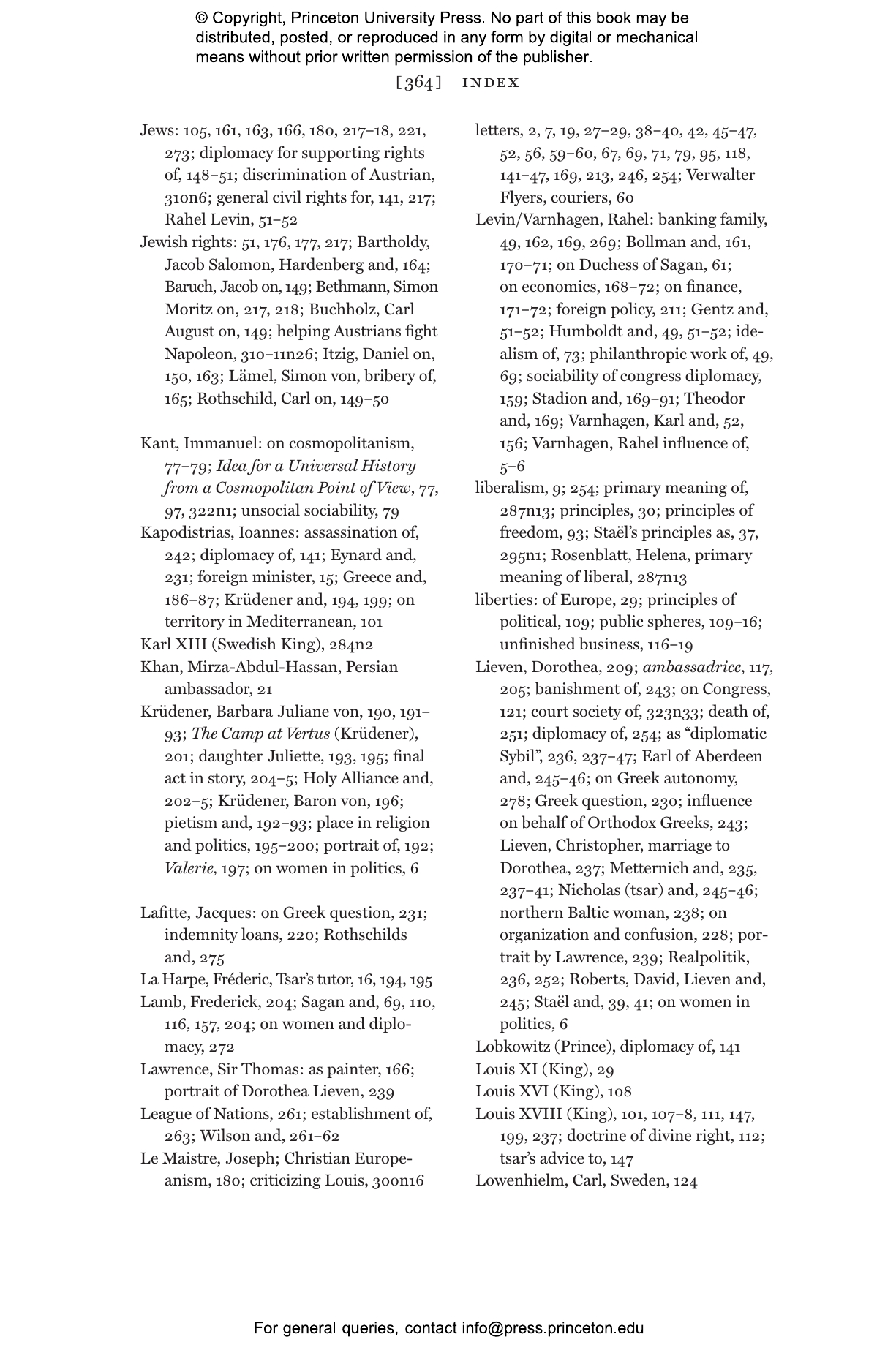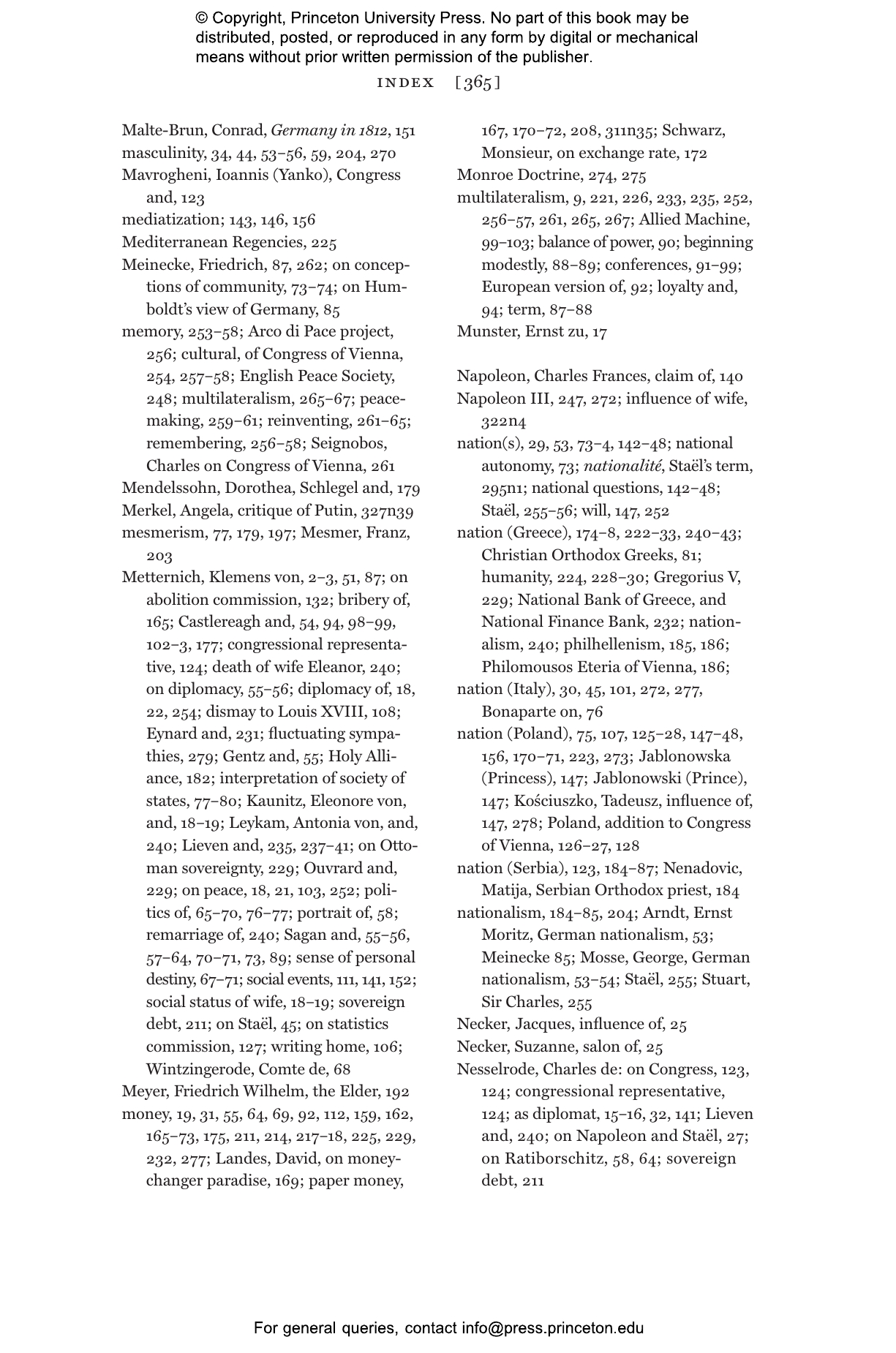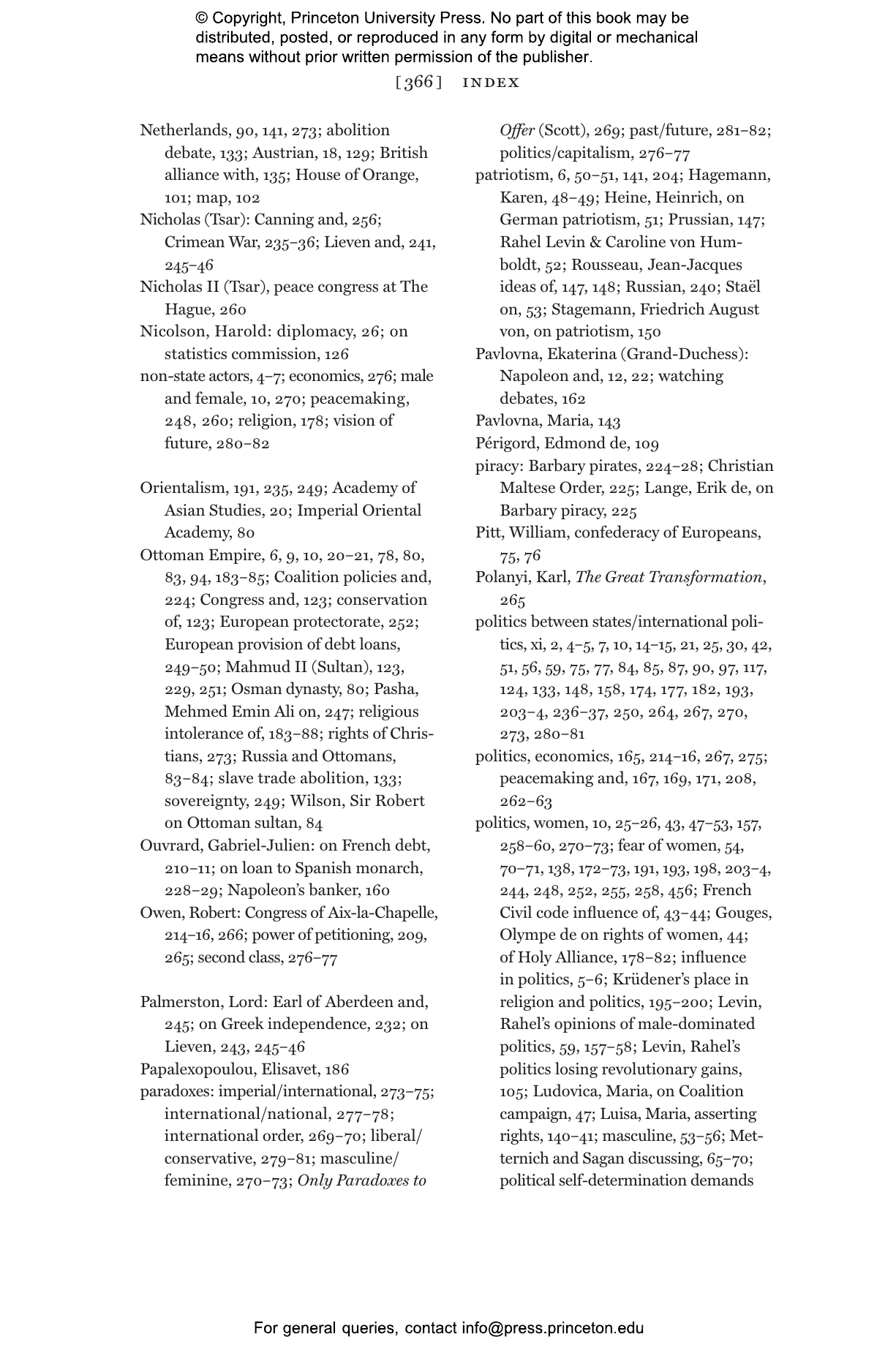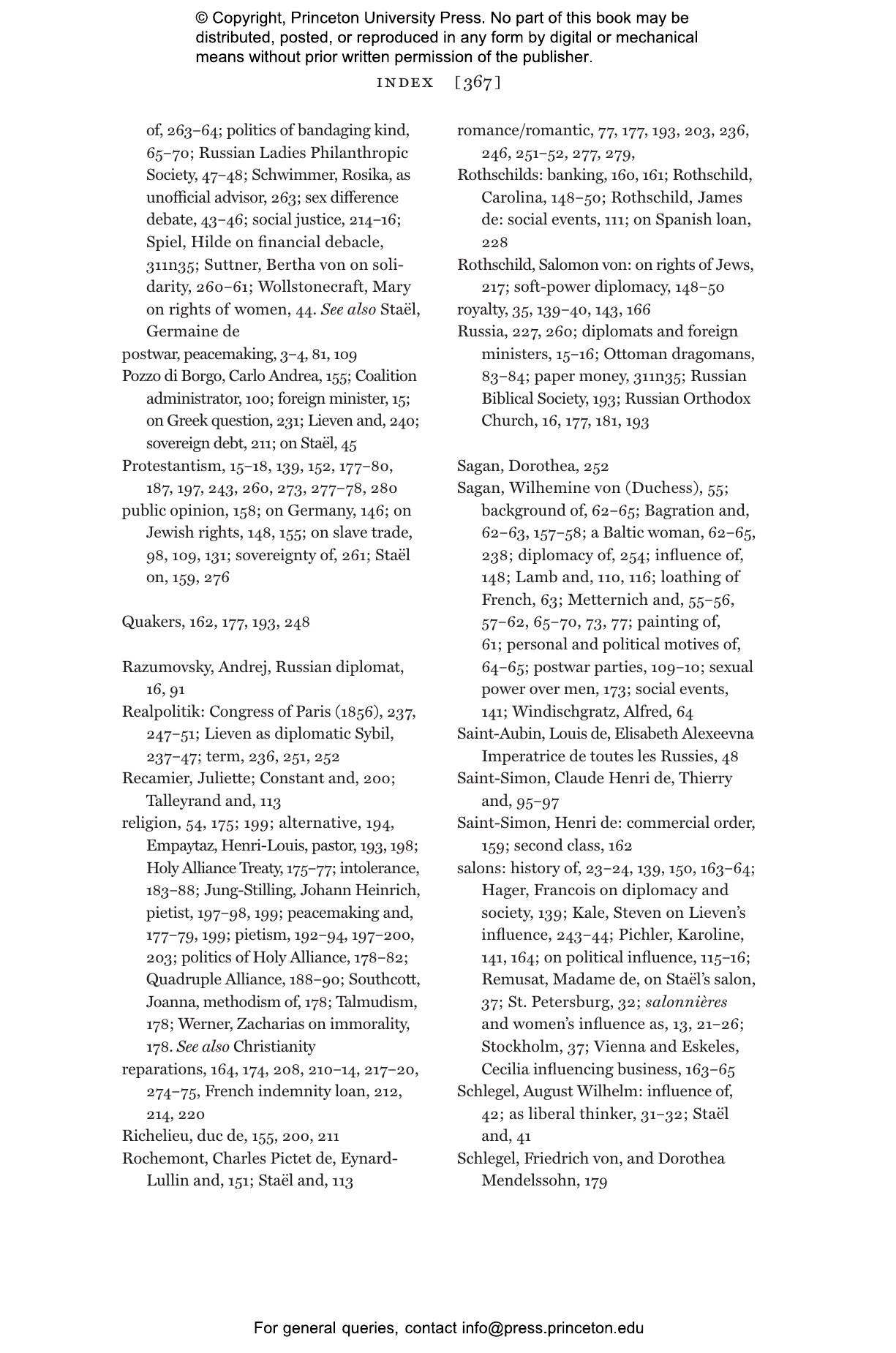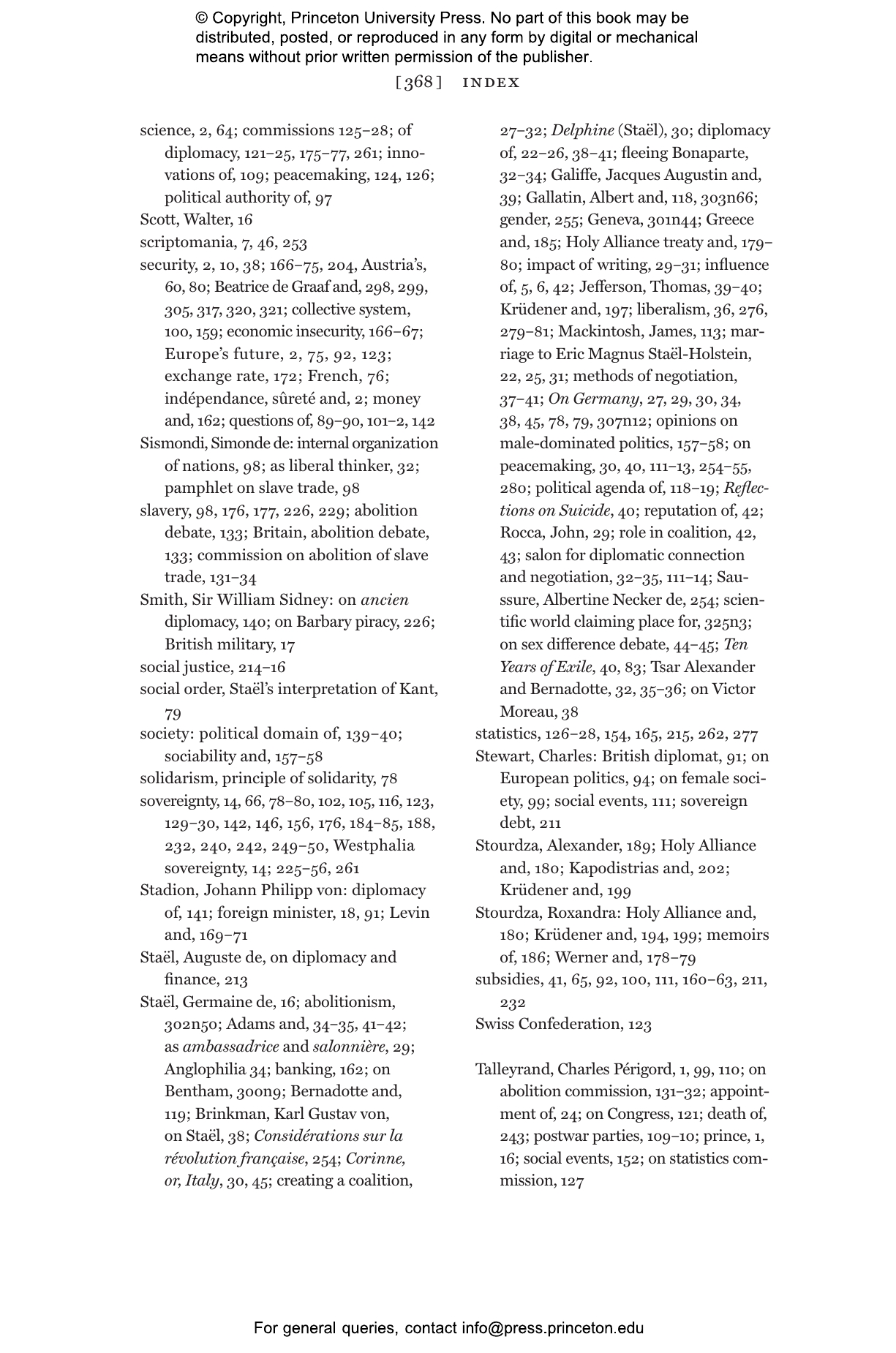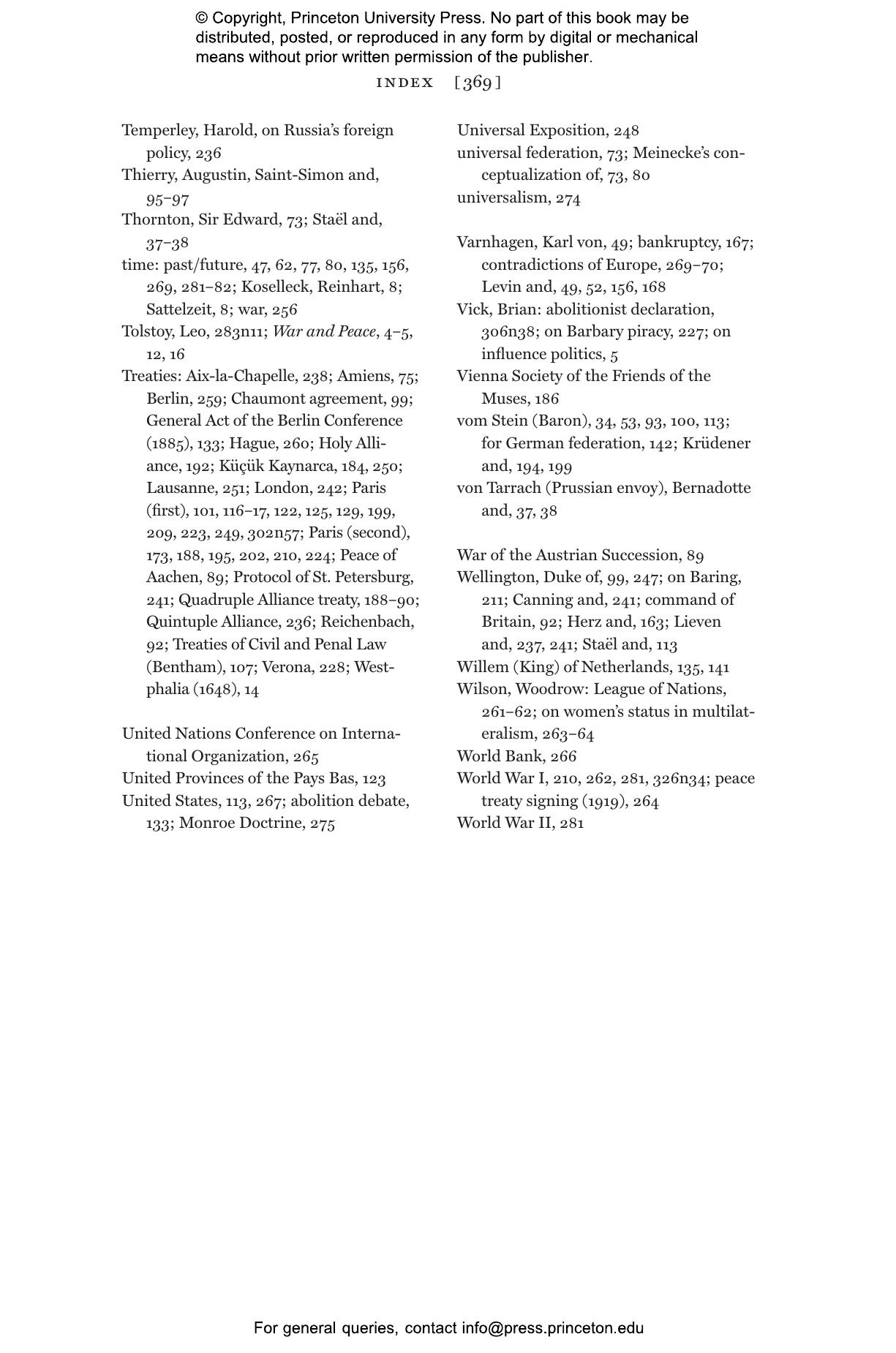The Invention of International Order: Remaking Europe after Napoleon
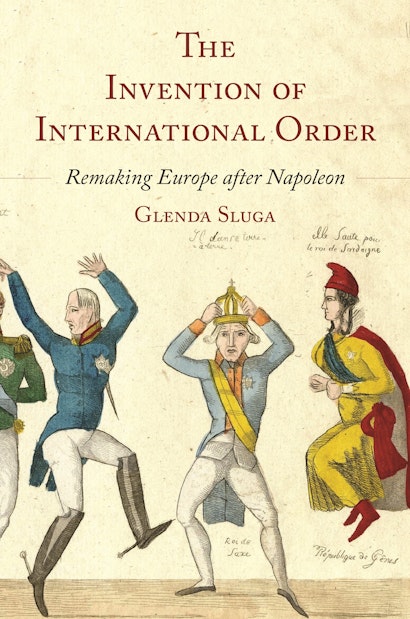

Hardcover
Paperback
- Price:
- $27.95/£22.00
- ISBN:
- Published:
- Jan 28, 2025
- Copyright:
- 2021
- Pages:
- 392
- Size:
- 6.13 x 9.25 in.
- 34 b/w illus. 5 maps.
- Main_subject:
- History
ebook
In 1814, after decades of continental conflict, an alliance of European empires captured Paris and exiled Napoleon Bonaparte, defeating French military expansionism and establishing the Concert of Europe. This new coalition planted the seeds for today’s international order, wedding the idea of a durable peace to multilateralism, diplomacy, philanthropy, and rights, and making Europe its center. Glenda Sluga reveals how at the end of the Napoleonic wars, new conceptions of the politics between states were the work not only of European statesmen but also of politically ambitious aristocratic and bourgeois men and women who seized the moment at an extraordinary crossroads in history.
In this panoramic book, Sluga reinvents the study of international politics, its limitations, and its potential. She offers multifaceted portraits of the leading statesmen of the age, such as Tsar Alexander, Count Metternich, and Viscount Castlereagh, showing how they operated in the context of social networks often presided over by influential women, even as they entrenched politics as a masculine endeavor. In this history, figures such as Madame de Staël and Countess Dorothea Lieven insist on shaping the political transformations underway, while bankers influence economic developments and their families agitate for Jewish rights.
Monumental in scope, this groundbreaking book chronicles the European women and men who embraced the promise of a new kind of politics in the aftermath of the Napoleonic wars, and whose often paradoxical contributions to modern diplomacy and international politics still resonate today.
Awards and Recognition
- Winner of the Inaugural Book Prize, Australasian Association for European History
